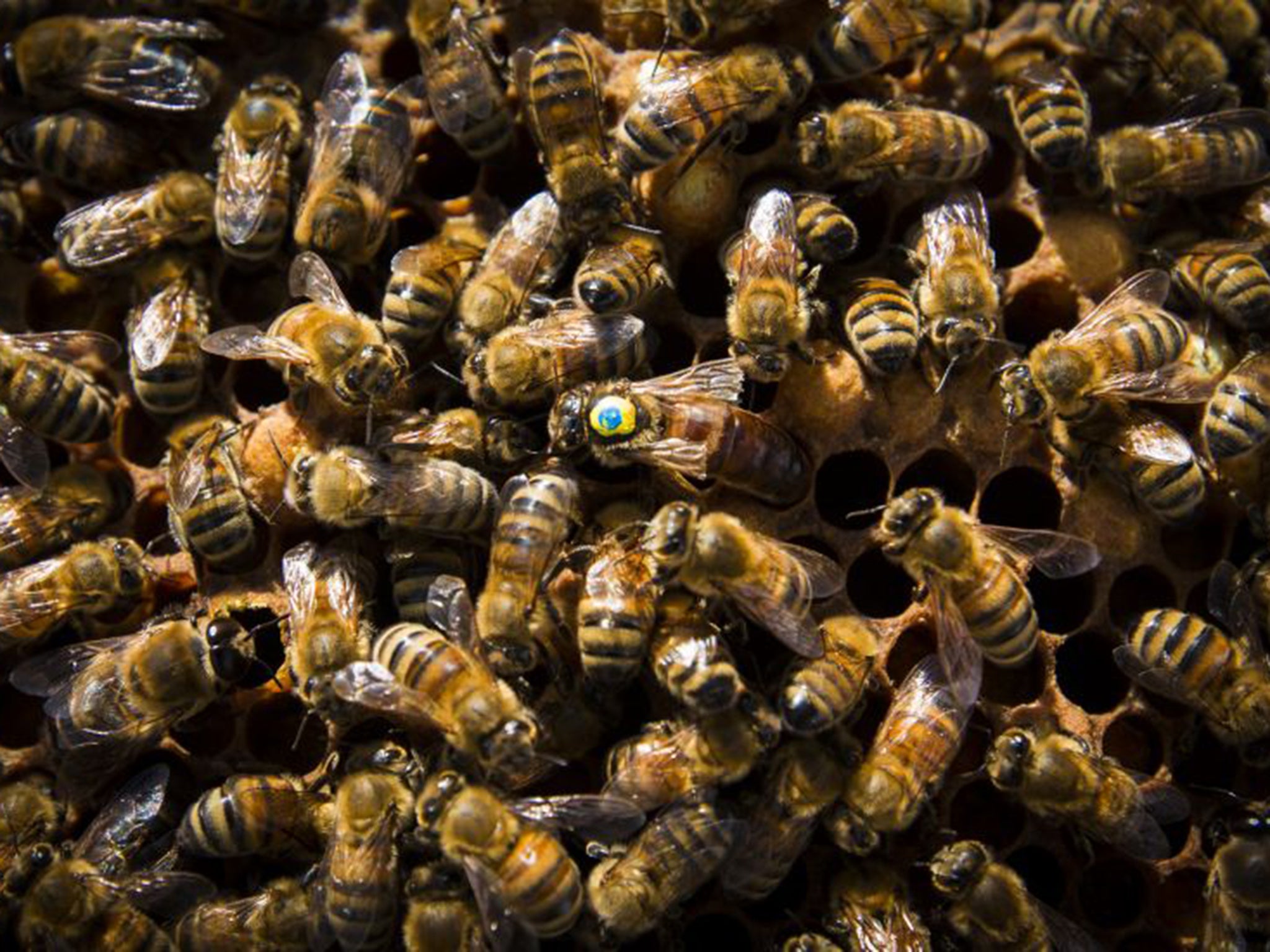Pesticide experts silenced by UK Government as it looks to bring back bee-killing neonicotinoids
National Farmers Union lobbies for pesticide ban to be lifted for oil seed rape

Your support helps us to tell the story
From reproductive rights to climate change to Big Tech, The Independent is on the ground when the story is developing. Whether it's investigating the financials of Elon Musk's pro-Trump PAC or producing our latest documentary, 'The A Word', which shines a light on the American women fighting for reproductive rights, we know how important it is to parse out the facts from the messaging.
At such a critical moment in US history, we need reporters on the ground. Your donation allows us to keep sending journalists to speak to both sides of the story.
The Independent is trusted by Americans across the entire political spectrum. And unlike many other quality news outlets, we choose not to lock Americans out of our reporting and analysis with paywalls. We believe quality journalism should be available to everyone, paid for by those who can afford it.
Your support makes all the difference.It looks as though the UK Government may lift a ban on bee-killing pesticides known as neonicotinoids, with reports claiming it has gagged its own advisers over their opposition to a proposal from the National Farmers Union.
Neonicotinoids, a nerve agent which scientists have found causes serious damage to bees, is the world's most widely-used insecticide.
It was banned by the European Union in 2013, in what was described at the time as a "victory for bees."
But the National Farmers Union (NFU) says neonicotinoids are required to grow oil seed rape, and has applied for an emergency lifting of the ban on two types of the pesticide.
According to a report in The Guardian, the Government's Expert Committee on Pesticides (ECP) opposes the measure. Perhaps tellingly, minutes taken from a significant meeting on May 20th have yet to be published on the ECP website — nor has the agenda for a meeting on July 7th.
The ECP, which advocates for transparency, usually publishes details of its meetings three weeks afterwards.
The Bee Coalition, who spoke with an ECP official, says the Department for Environment and Rural Affairs (DEFRA) has requested the committee delay publication of these minutes "to enable government to have the time and space to consider applications for emergency authorisations without having to provide interim comment or provoking representations from different interest groups whose views on the issue are well known."
Meanwhile the NFU has submitted new applications to lift the ban in targeted parts of the country.
The neonic pesticides the Government may bring back are credited with depleting the number of bees - whose pollination is vital for growing crops - in countries where they are used.
The following interactive map, designed by Fairmont Hotels, show where in the world certain pestcides - including neonics - are legal, with the developing world clearly less likely to have introduced stringent environmental regulations.
Dr Richard Comont, a scientist from the Bumblebee Conservative Trust, told The Independent: "The use of pesticides is definitely a factor [in the number of bees dying], but it's far from the only issue, or even the main issue, for most species."
"Pesticides do have an impact. There's now good evidence that neonicotinoid pesticides have sub lethal effects on behaviour, production of new queens," he explained. Some studies have found that neonics cause colonies to produce 85 per fewer queens.
But the death of the bees, which has been going on for the best part of a century, is caused moreso by loss of habitat. Neonics only came about in 1994.
As for Africa, where neonics are legal right now, there's just not as much data about the bees. Dr Comont said: "There's very little evidence of what's happening in Africa with bee populations, though there's some signs that species are disappearing as their habitat is destroyed - forest specialists retreating as the forest is felled, for instance.
"There's very little reliable data on pesticide use, though as is clear usage is much less restricted over there - but if the bees have lost their nest sites and forage areas, pesticides won't inconvenience them much more."
Join our commenting forum
Join thought-provoking conversations, follow other Independent readers and see their replies
Comments